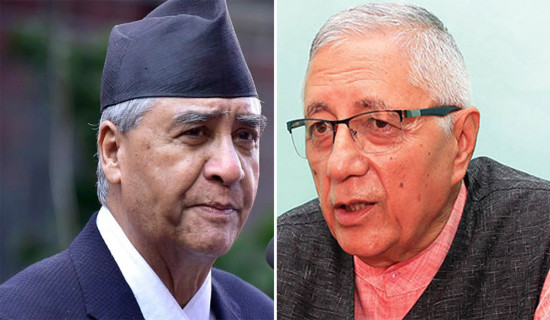- Tuesday, 16 December 2025
On TikTok Ban
Dixya Poudel
As of November, 2023, TikTok is banned in Nepal, following suit of a number of countries which too have banned the popular social media site. Following this ban, many Nepali TikTok users have been left in shambles, particularly those who depended on the site for their livelihood.
As such, TikTok isn’t just a video posting app, it is also a way of sustenance for Nepali content creators and influencers who have been conducting their business through TikTok. It goes without saying that the ban has hit them particularly hard. As a result, the petitions against the ban on TikTok have been piling up in the Supreme Court.
It is said that major Nepali political leaders were miffed over their negative portrayal on TikTok videos which went viral. Many have speculated that this could have had a hand in the social media site’s ban.
Following the government’s decision, many Nepalis have decried it as a clamp on free speech on media. And TikTok ban is an example of a restriction against media as social media is a form of media, albeit a relatively recent one. Since 2010s, it has proliferated at an exponential rate. While the rage over Facebook may have waned a little, TikTok has had a meteoric rise.
However, unlike other social media, TikTok has faced a harsh thrashing from governments worldwide citing national security concerns and data privacy. As such, TikTok is certainly privy to personal data of the users and the governments fear its misuse. In case of Nepal government, it has stated that the video platform has dismantled social harmony and has negatively impacted Nepali community. According to the government, TikTok has incited an inclination towards hate speech. Following the ban, there was a spike in internet traffic in Nepal as users tried to access TikTok through VPN (Virtual Private Network).
People even took to the streets to rally against this ban as they felt it was a breach on free speech. Democracy ensures a right to free speech and expression. Thus, as a democratic nation, could Nepal have impinged upon its citizen’s free speech by banning TikTok? As public debate over this has escalated, ironically in the remaining social media which aren’t yet banned, political leaders are defending their decision. However, even amongst the national political leaders, there are those who are against this decision but they happen to be in the minority.
For now, the ban remains with the dismay of millions of TikTok users in Nepal who have been calling for a regulation instead of a ban. From their perspective, it does seem like an extreme step. The government instead should have taken steps to regulate the content disseminated on TikTok before taking this drastic decision. Social media is unlike traditional media which is more moderate. Since posts can be viral in a matter of few hours, the news and information spreads quickly in social media with little accountability.
However, if one is to weigh the pros of social media, there are many merits including educational content, connectivity resources, and an empowerment of the voiceless and the marginalised. Thus, with a certain set of regulations, social media can be beneficial. For now, it remains to be seen how the TikTok debate will play out in the upcoming days.

















